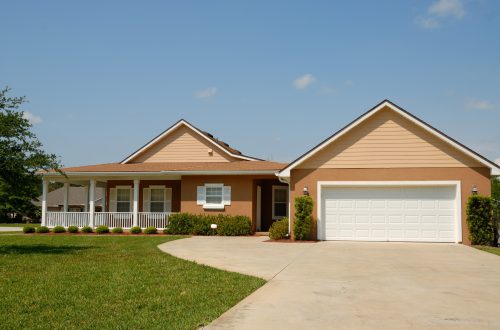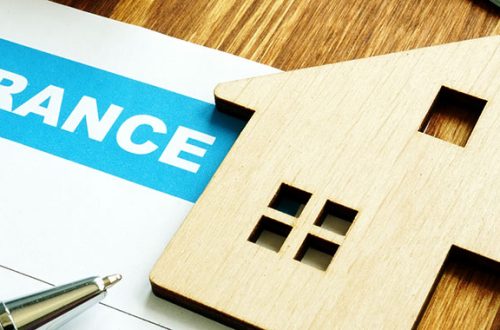
The 8 types of homeowners insurance
Searching for homeowners insurance in Central Oregon? If so, you’ve come to the right place!
In this article, we will offer you more information on homeowners insurance policies and which one is right for you.
Types of homeowners insurance
Your home insurance choice depends on the structure of your home and your needs. If you’re a renter, you may not need the same type of coverage as a homeowner, and if you’re a homeowner, you won’t need the same protection as a landlord. Here are the eight forms of homeowners policies:
HO-1: Basic form
Best for: Any homeowner who wants minimum coverage
An HO-1 policy covers your home and personal property inside your home (like furnishings, electronics, carpeting, and clothing). This insurance form typically offers financial protection against major natural disasters like fire, lightning, windstorms, and hail. In addition, an HO-1 policy provides coverage against volcanic eruption, theft, vandalism, broken glass, damage from aircraft, damage from rioting, explosions, and smoke.
This insurance typically won’t cover flooding or earthquakes. However, most homeowners insurance carriers have an option to add insurance riders for additional coverage at an extra cost.
It’s important to note that HO-1 insurance is uncommon, and few insurers sell this type of policy because it offers such minimal coverage.
HOW TO DECIDE IF YOU NEED FLOOD INSURANCE FOR YOUR HOME
HO-2: Broad form
Best for: Homeowners who want a bit more coverage than an HO-1 or who live in higher-risk areas
An HO-2 policy covers damage from the same types of incidents as an HO-1 policy, in addition to other events, including falling objects, the weight of snow, sleet, or ice, accidental overflow of water from plumbing systems, accidental rupture of HVAC, freezing pipes, and damage from an electrical current.
The benefit of this policy is that it provides more coverage than an HO-1 policy. While some of these perils are less common, they can cause significant damage. If you live in a colder climate prone to freezing pipes or heavy snow, an HO-2 insurance policy may be beneficial.
HO-3: Special form
Best for: Homeowners who prefer open-perils coverage for their home
HO-3 insurance is the most common type of homeowners insurance in the U.S. This policy covers your home against all perils except specific incidents named as exclusions in your policy. Keep in mind that your personal property is still covered on a named-perils basis with an HO-3 policy.
You’ll get more coverage than you would with an HO-1 or HO-2 policy without paying for the most comprehensive policy. An HO-3 policy covers up to the replacement value of your home and the actual cash value of your personal items.
HO-4: Contents broad form
Best for: Renters
If you don’t own a home, you can still protect yourself from financial loss with a renters insurance policy. Some landlords require that tenants carry this insurance. An HO-4 policy only covers your personal items, since your landlord insures the property itself. This form of insurance includes coverage for the same events listed in an HO-2 policy.
HO-5: Comprehensive form
Best for: Homeowners who want maximum coverage
An HO-5 policy is the most comprehensive homeowners insurance policy available, but this also means it’s typically the most expensive. This insurance covers your home and personal belongings from all events except those specifically listed in your policy.
Comprehensive coverage is often more expensive because it covers the loss of your property and personal items at replacement cost value rather than actual cash value, which deducts for depreciation.
REPLACEMENT COST VS. MARKET VALUE IN HOMEOWNERS INSURANCE
HO-6: Unit-owners form
Best for: Condo owners
HO-6 insurance covers condominium units and an ownership interest in a co-op. It typically covers the standard perils, but only for the interior of your unit — it doesn’t cover shared areas in your complex. Your HO-6 policy supplements a master policy for the complex that your condominium association manages. As with home mortgages, your lender will likely require you to have condo insurance.
HO-7: Mobile home form
Best for: Mobile home owners
Mobile homes aren’t classified the same as traditional home structures, and they have their own type of insurance. An HO-7 policy provides open-perils coverage for your mobile home and named-perils coverage for the contents of your home. Your open-perils coverage will cover most events, but some things that it typically excludes are floods, mold, nuclear hazards, and acts of war.
HO-8: Modified coverage form
Best for: Owners of older homes
HO-8 policies are specifically for older homes that are more difficult to insure since the cost to rebuild is often more than the market value. The policy has more restrictions, but it helps protect homes that may not otherwise qualify for homeowners insurance. An HO-8 policy covers both your home and personal property for actual cash value. It covers the same perils as an HO-1 policy.
Contact Howard Steele Agency
For an affordable homeowners insurance quote, contact us today at (541) 318-8835 or click here




